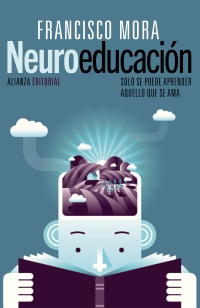
What is the NEUROEDUCACION? Can you talk about the NEUROEDUCADORES, a new profession? There are problems in the relationship neuroscientist-teacher (and beyond university professors), especially in the language used by the first to head to the seconds in the transfer of this knowledge. Until now, the knowledge extracted from the Neurosciences has not been easy to show it to the teachers and they transfer it as a method for teaching children or students of the Institute. This text offers some ideas on what has come to be called Neuroeducación and what this implies in the discussion about the potential of neuroscience to foster a reformation in education.
Neuroeducación
[…] a framework in which to place the knowledge of the brain and how it interacts with the environment that surrounds him in his specific branch of the teaching and learning. And above all, an attempt to create, based on the data that can provide scientific research, a solid base, beyond opinion or ideology, that can be carried not only to the teachers and teachers in general, but to the society itself, which includes parents, teaching institutions, various media, and since then leaders at the national level who have to implement educational policies. Neuroeducación, however, is not yet an academic discipline with a body of regulated knowledge. Precisely and in front of this possibility, listen to authoritative voices that considered to be premature this new adventure […]
[…] But there are those who think otherwise. That is to say, those who claim so strongly that you already should begin and move forward on this path, given that new knowledge about how the brain learns and memorizes occur in an accelerated mode, changing, year after year, month-to-month.
(p. 24)
.
.
.
Brief review on Francisco Mora

Francisco Mora is doctor of Medicine from the University of Granada and a phd in Neuroscience from the University of Oxford (England). Is professor of Human Physiology of the Faculty of Medicine of the Complutense University of Madrid and a professor Attached to the Department of Molecular Physiology and Biophysics from the University of Iowa in the U.S. it Is a member of the Wolfson College of the University of Oxford. Apart from Neuroeducación: you can only learn that which one loves, among his most recent books are: how You can delay the aging brain? (2010), The God of Each One: why neuroscience denies the existence of a universal god (2011), what Is our brain designed for happiness? (2012).
